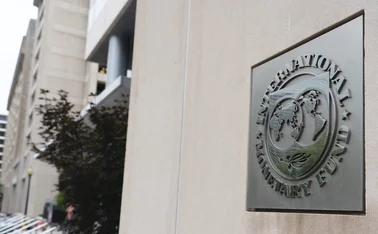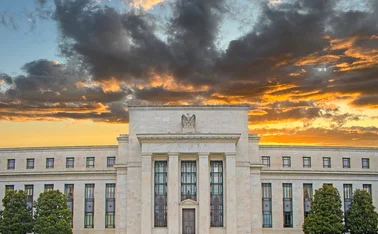
Central banks are preferred regulators: CentralBanking.com panel

The trend for central banks to be handed additional power to regulate financial firms should be welcomed, but with caution, a panel of leading commentators said Tuesday.
Panellists on Central Banking On Air's web seminar on financial regulation agreed measures to hand power for regulation back to central banks were the right move.
Sir John Gieve, a former deputy governor for financial stability of the Bank of England, said internalising regulation within central banks would minimise gaps in the regulatory framework. "If you have different institutions it is difficult to get them to cooperate. Having them within the same organisation will help," Sir John said. Paul Mortimer-Lee, the global head of market economics at BNP Paribas, said such structural change would help better coordinate central banks' efforts to conduct both monetary and financial stability policy. "If monetary policy had been more coordinated with regulatory policy then more note [of problems in the banking system] might have been taken at an earlier stage," he said.
However, Charles Goodhart, a professor emeritus at the London School of Economics, warned against this view, arguing that the same case could be applied for getting one body to carry out fiscal, monetary and regulatory policy. "The interaction between monetary policy and fiscal policy is as true as the interaction between monetary and stability policy and yet monetary policy independence became the cornerstone of central banking," Goodhart said.
Risks
The panel also warned that becoming responsible for supervision could have other drawbacks. Sir John cautioned that putting everything in one institution could lead to "group think". Mortimer-Lee felt it did not necessarily mean regulation would improve. "It's not where it's done but what is done that counts," Mortimer-Lee said. Goodhart agreed, saying that the heart of the problem was changing the mindset of regulators rather than perceived deficiencies in information on individual banks.
Mortimer-Lee further argued the new role could affect central bank's ability to conduct monetary policy owing to the impact of a financial firm's failure on credibility. "Inevitably if anything goes wrong, then the central bank's reputation will be damaged and so will monetary policy,"Mortimer-Lee said. Sir John was less concerned and felt central banks' reputations had taken a hit during the crisis anyway, regardless of whether or not they were responsible for regulation. "If we are going to take the blame we might as well have more control," he said.
Power
The panel were untroubled by central banks holding a greater amount of power as a result of their new role. Sir John noted greater power would come with greater accountability. Goodhart said providing the central bank with more powers rather than less was the consensus view among countries. Goodhart used the example of the US Congress, which provided the Federal Reserve with greater responsibilities through the Dodd-Frank bill despite an initial backlash during the crisis when it threatened to strip the central bank of its powers. "When lawmakers looked more closely they realised that it was best to provide the Fed with additional responsibilities," Goodhart said.
Global
The panel also agreed that a universal regulatory model was impossible due to restrictions imposed by federal laws. However, Sir John said that regulators would need to cooperate more globally. "There has been some progress with the Basel Committee but there needs to be more dialogue between countries," he said. Sir John added that the G20's superseding of the G7 was a positive step in this regard.
Meanwhile, Goodhart said that regulators in developed economies were probably too liberal and should be more like their peers in emerging markets, which often take a hands-on approach to supervision. Goodhart added that advanced economies were gradually moving back towards a more stringent regulatory framework, considering the adoption of measures such as maximum loan to value ratios. In the future there would be more coherence between regulation in advanced and emerging markets than in the past, he said.
Click here to view the debate
Only users who have a paid subscription or are part of a corporate subscription are able to print or copy content.
To access these options, along with all other subscription benefits, please contact info@centralbanking.com or view our subscription options here: www.centralbanking.com/subscriptions
You are currently unable to print this content. Please contact info@centralbanking.com to find out more.
You are currently unable to copy this content. Please contact info@centralbanking.com to find out more.
Copyright Infopro Digital Limited. All rights reserved.
As outlined in our terms and conditions, https://www.infopro-digital.com/terms-and-conditions/subscriptions/ (point 2.4), printing is limited to a single copy.
If you would like to purchase additional rights please email info@centralbanking.com
Copyright Infopro Digital Limited. All rights reserved.
You may share this content using our article tools. As outlined in our terms and conditions, https://www.infopro-digital.com/terms-and-conditions/subscriptions/ (clause 2.4), an Authorised User may only make one copy of the materials for their own personal use. You must also comply with the restrictions in clause 2.5.
If you would like to purchase additional rights please email info@centralbanking.com







